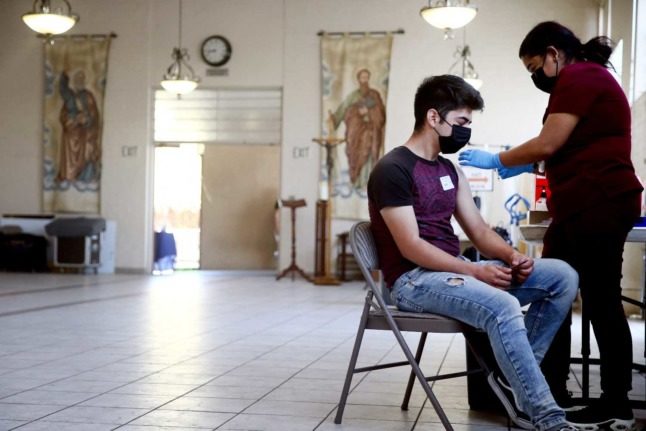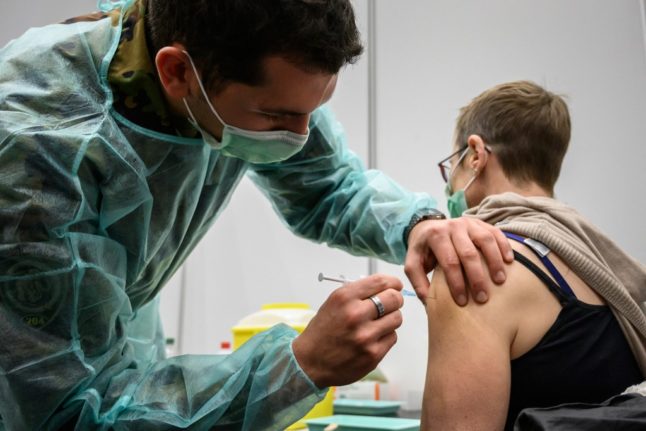Switzerland has confirmed that it will extend its vaccination program to people aged 12 and above from mid-July.
Previously, cantons vaccinated only from the age of 16 and up.
READ MORE: When will Switzerland start vaccinating children?
Vaccinations of children are considered to be essential to the Swiss inoculation strategy, which aims to reach herd immunity in the population.
“We are doing everything in our power to ensure that vaccination is also accessible for children and adolescents as soon as possible”, said Anne Lévy, director of the Federal Office of Public Health (FOPH).
Vaccinations of people between the ages of 12 and 17 will be carried out with the Biontech/Pfizer vaccine.
Switzerland’s other approved vaccine, that from Moderna, is currently not approved for those under 18 although the company has applied for approval.
Do parents need to consent for their children to be vaccinated?
No. Swiss Health Minister Alain Berset confirmed to parliament that parental consent is not required in order for children to be vaccinated.
While some parents, particularly those who are sceptical about vaccines, may be dismayed by the decision, the position is valid in Swiss law.
READ MORE: How to register for the coronavirus vaccine in your Swiss canton
Berset said minors from the age of 12 and up were “largely capable of judgement” and therefore can make their own decisions with regard to vaccinations, provided they are mentally healthy and conscious.
Where a child from the age of 12 satisfies this standard “no parental or legal guardian consent is required”.
Parents are only allowed to have a say on whether their child gets vaccinated if the child is incapacitated or otherwise unable to make the decision.
“Only if a child or a young person is incapable of judgment do the owners of parental authority have to give consent to the vaccination,” concludes Switzerland’s Federal Office of Public Health.



 Please whitelist us to continue reading.
Please whitelist us to continue reading.
Member comments